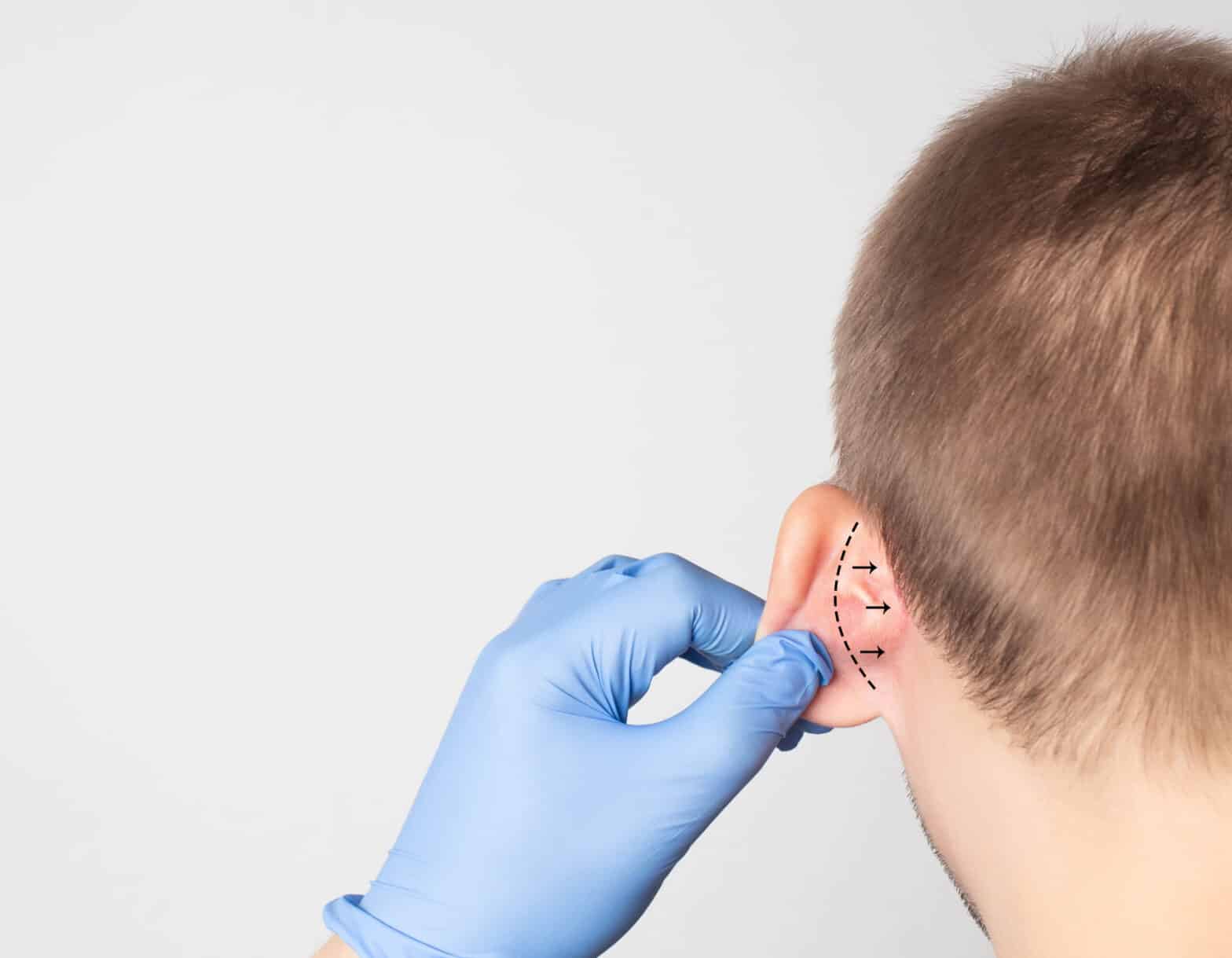
Article at a Glance
- Some children might be born with protruding, misshapen, or asymmetrical ears. This can become a source of embarrassment and result in ridicule from their peers.
- Parents can consider ear pinning or otoplasty, a surgical procedure that improves the appearance of their child’s ears.
- Otoplasty surgery is generally considered safe for children of all ages. Many surgeons believe that performing the surgery earlier is better, as the child’s ear cartilage is more pliable and easier to manipulate.
- Proper dialogue between the child, parent, and surgeon is critical to ensure a successful operation.
Ear surgery, or otoplasty, is a cosmetic procedure that can improve the appearance of protruding, misshapen, or asymmetrical ears. Many children are born with ears that are disproportionate to the rest of their faces, which can be a source of teasing and bullying. For this reason, parents might opt for surgery to improve their child’s appearance.
How Can Otoplasty Help?
Otoplasty is a type of cosmetic surgery that involves multiple procedures, all aimed at improving the appearance of the ears. For children, otoplasty can:
- Change ear shape
- Reduce ear size
- Make ears symmetrical
- Make ears proportionate to the rest of the face
- “Pin back” ears to reduce protrusion from the side of the head
- Correct the appearance of bent, cupped, or otherwise malformed ears
How Does the Procedure Work?
Otoplasty involves making an incision in the ear, which allows the surgeon to access the cartilage. They sculpt the cartilage to create a more aesthetically pleasing shape. In some cases, they might also need to remove excess skin.
Ear plastic surgery time to completion is about one to two hours. Before the operation, surgeons will first consider the child’s ear shape, age, and the nature of their condition. In most cases, they can make an incision underneath the crease in the back of the ear to hide any resulting scars.
Surgeons work closely with anesthesiologists to ensure the child’s safety and comfort during the surgery. Younger patients with anxiety or fear might receive general anesthesia, while older patients can usually undergo the procedure with just local anesthesia and sedation.
Is Otoplasty Safe?
The most pressing concern for parents considering otoplasty surgery for their child is safety. Fortunately, this operation is generally safe for children of all ages.
The most common complication from otoplasty for children is an infection, but the risk of incurring one is very low if you follow the proper post-operative care. That said, even if a child does get an infection, that is curable with antibiotics.
One common misconception is that ear surgery can change a child’s hearing. However, this is not the case as otoplasty only works on the cartilage, the non-functional part of the ear. The ear canal and eardrum aren’t affected by this type of surgery.
Otoplasty During Childhood Has its Advantages
What is the right ear pinning age? While adults can also benefit from otoplasty, many advantages come with undergoing the surgery during childhood. One benefit is that ear cartilage is still pliable at a young age, giving the surgeon more flexibility in shaping the ear.
Another advantage is that the child’s ears will continue to grow as they age. Surgeons can time the procedure so that the child’s ears are the correct size when they reach adulthood.
Make Your Child Part of the Decision
Another crucial consideration when deciding whether or not to move forward with otoplasty surgery is your child’s opinion. This type of procedure can have a significant impact on your young one’s self-esteem. For this reason, you need to involve them in the decision-making process.
These questions can help you start a conversation with your child about otoplasty:
Is Your Child Bothered by the Way Their Ears Look?
One of the biggest concerns for parents is that their children might get teased or bullied because of their ears. If your child is unhappy with how their ears look, they might be more likely to want surgery.
Can They Fully Understand the Procedure?
Another important consideration is whether or not your child understands the procedure. It is essential to ensure they are old enough to understand the surgery.
You should also discuss surgery’s risks and potential side effects with your child. This will help them make an informed decision about whether or not to proceed with the surgery.
Do You Have to Bribe or Push Them?
You should never feel like you have to coerce your child into having surgery. This is a big decision a child should make with their parent’s input and guidance.
Will Your Child Follow the Rules for Recovery?
After the operation, the surgeon will suggest a routine your child will need to follow for recovery. This includes:
- Not participating in strenuous activities for at least six weeks
- Sleeping on their back with their head elevated for the first week
- Using a headband or splint to keep their ears in place
- Taking prescribed medication
- Avoiding touching or scratching their ears
Following the rules for recovery significantly lessens the otoplasty recovery time and helps ensure a successful outcome. If you’re unsure whether or not your child will be able to follow the rules, it might be best to wait until they are a bit older and more responsible.
Take Your Time and Talk to An Expert
The last step in deciding whether or not to proceed with otoplasty surgery is to visit a board-certified plastic surgeon with your child. During the family consultation, the surgeon will assess your child to see if they are a good candidate for the procedure, discuss the expected outcome, and address your questions or concerns.
You or your child should never feel pressured to decide on otoplasty surgery. Take your time and talk to an expert before making a final decision.
Dr. James Wang is an award-winning, board-certified plastic surgeon specializing in otoplasty surgery. Contact our office today to schedule a consultation. We would be happy to provide more information about the procedure and how it might help your child.
